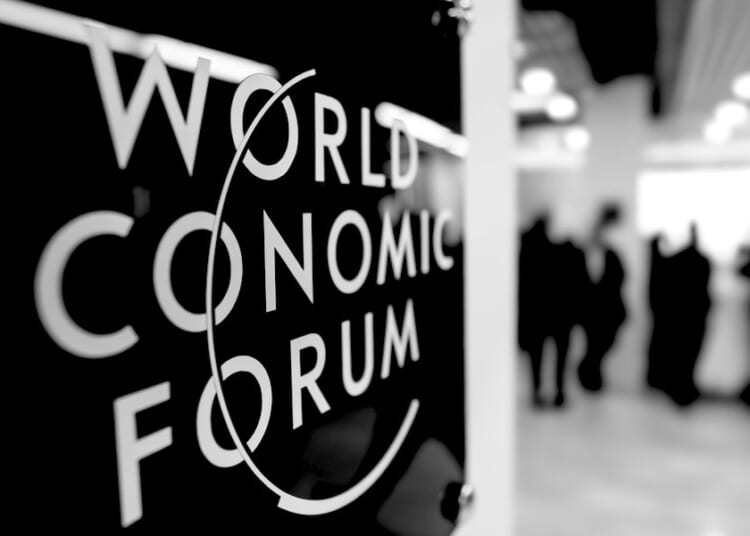IN A recent address to the World Economic Forum, EU President Ursula von der Leyen, citing the WEF’s annual ‘global risk report’, pointed to ‘misinformation and disinformation’ as the greatest risks facing the global business community. These risks are ‘serious’, in her view, ‘because they limit our ability to tackle the big global challenges we are facing’ – climate, demographics and technological changes, and ‘spiralling regional conflicts and intensified geopolitical competition’.
The answer to the risks of misinformation and disinformation, in President von der Leyen’s estimation, is for businesses and governments to ‘work together’ to get a grip on the problem. Though von der Leyen does not use the word ‘censorship’ in her address, the example she offers of businesses and governments ‘working together’ is the European Digital Services Act, which imposes a legal requirement upon large online platforms like X/Twitter and Meta/Facebook to censor misinformation, disinformation and hate speech.
Few would question the claim that artificial intelligence, bots and various malicious actors can leverage social media and other digital information highways to confuse, disorient and manipulate citizens. However, the President of the European Commission, like any smart politician, knows how to milk a crisis to expand her own power, and her January 16 speech at Davos was a tour de force in crisis manipulation.
She could have used her unique position of leadership to underline the true nature of the threat of disinformation, which is a threat coming from all directions – not just from malicious private actors, but from governments that run ‘information’ campaigns designed to harness people’s primal instincts, most notably fear and solidarity, in support of their preferred policies. Ms von der Leyen could have used her platform to caution her audience about the dangers of handing the keys to the internet to a handful of powerful actors with an evident interest in silencing their critics.
But instead, in true political form, she presented an utterly self-serving, one-sided, and dishonest picture of the risks of ‘disinformation’ and ‘misinformation’ reminiscent of the musings of a dictator. The general narrative she conveyed was that the purveyors of ‘misinformation’ are throwing a spanner in the works of global co-operation, but that if businesses and governments just pull together, they can nip this avalanche of disinformation and misinformation in the bud. This narrative is wrong in so many ways:
- This naive view of ‘us the world’s heroic business and political elite’ and ‘them the nasty disinformation-producers’ distracts attention from the rather inconvenient fact that disinformation and misinformation show up on all sides of the political spectrum. There is no ‘global team’ that can safely be entrusted with the task of quashing ‘misinformation’. If there is one thing the past few years have taught us, it is that the people applying ‘misinformation’ rules (e.g. the ‘fact-checkers’) are often the ones lying to or deceiving the public, whether on the origins of the coronavirus, the safety and efficacy of mRNA vaccines, or some other issue of public importance.
- Given the fact that ‘misinformation’ and ‘disinformation’ is spread throughout the political spectrum and not concentrated in the hands of a few easily fingered malicious actors, in practice the very perception of what counts as misinformation and disinformation often depends on one’s political interests and biases, and is not a morally or politically neutral category.
- Dictators and tyrants are quick to accuse their critics of misinformation and disinformation and to blur the dividing line between reasonable dissent and malicious ‘disinformation’ – clearly, they recognise that the term has value as a vehicle of propaganda. Repeatedly seeking to silence one’s critics under the pretext that they are threatening democracy with ‘disinformation’ is proper to dictators, not governors bound by principles of democratic accountability. A democratic ruler accepts that his or her policies may be publicly challenged, even if this slows down their implementation. A tyrannical ruler, on the other hand, is impatient with criticism and would prefer to just shut up his critics.
- Finally, the appeal to solidarity and co-operation in the fight against disinformation is rather disingenous, to say the least, given that the example of public-private co-operation given by von der Leyen conspiciously involves coercive intrusion by EU bureaucrats in the moderation policies of online platforms. Nobody would suggest that online platforms are run by angels, or that their moderation policies are immune to criticism, but the whole narrative of ‘Let’s work together for the common good’ falls to pieces when the main tool of ‘co-operation’ is a piece of legislation (Digital Services Act) that enthrones a political elite and their employees as the coercive arbiters of truth and falsehood on the internet. This is a naked power grab by the European Commission and EU member-State governments, not ‘working together’ with businesses to combat disinformation.
This article appeared in Brownstone Institute on January 25, 2024, and is republished by kind permission.











